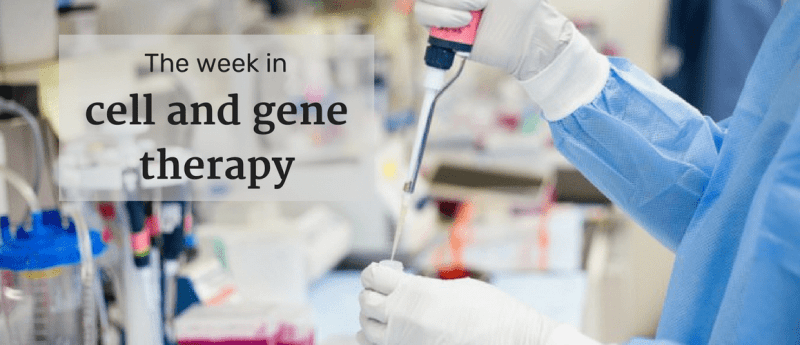Cell therapy weekly: Potential breakthrough in cell therapy use for immunotherapy non-responders

This week: A novel system offers improved precision and control over CAR-T therapies and US$16 million funding to progress the development of potentially life-saving cell therapies.
The news highlights:
Potential breakthrough in cell therapy use for immunotherapy non-responders
A novel method for improved precision and control over CAR-T therapies
US$16 million to advance development of life-saving cell therapies
Potential breakthrough in cell therapy use for immunotherapy non-responders
The results of an international collaboration between researchers from the National Cancer Institute (MD, USA), the Robert W. Franz Cancer Center (OR, USA), the Karolinska Institute (Stockholm, Sweden) and the Vall d’Hebron Institute of Oncology (Barcelona, Spain), demonstrate the success of a less invasive method for identifying killer T cells in gastrointestinal cancer patients’ blood. These naturally occurring T cells can recognize and target neoantigens exclusively expressed on tumor cells. The study represents a breakthrough in the potential development and use of engineered killer T cells for patients with low mutational burden-gastrointestinal tumors, who are often resistant to the benefits of current immunotherapies.
Alena Gros, lead study researcher from the Vall d’Hebron Institute of Oncology, commented: “While we did not expect to find killer T lymphocytes in the blood of these patients with cold tumors, with low mutational burden, we have now shown that we can identify and select these cells in blood, which will facilitate and spur the future development of pioneering and personalized cell therapies by liquid biopsy.”
A novel method for improved precision and control over CAR-T therapies
Bioengineers from the University of California San Diego (CA, USA) have developed a system that allows them to select when and where administered engineered CAR-T cells are activated; this may allow for the targeting of cancer cells with minimal collateral damage to normal somatic cells. The system requires two-step activation of the CAR-T cells by blue light and Tamoxifen — a breast cancer pharmacotherapy. Researchers successfully tested the approach on live cells, for proof-of-concept; going forward, the team hope to trial the system on tumor cells in mice.
Co-senior study author Peter Yingxiao Wang, a professor of bioengineering at the University of California San Diego, commented: “With our technology, we can have better control over CAR T-cell treatments in patients and potentially avoid non-specific targeting of organs and nonmalignant tissues.”
US$16 million to advance development of life-saving cell therapies
Mogrify (Cambridge, UK), a cell therapy development company, have announced their raising of US$16 million in funding as their Series A funding drive comes to a close. The funding is to support internal cell therapy programs and the development of novel intellectual property for cell conversions of a broad therapeutic interest.
Darrin Disley, CEO of Mogrify, stated: “Having now raised over US$20 million, we can focus on delivery of our business strategy with the support of an aligned investor group. We will continue to engage with high-caliber investors with computational biology and cell therapy domain expertise as part of our on-going investor relations and capital markets strategy.”
For more weekly cell therapy news, read previous editions of the cell therapy weekly.